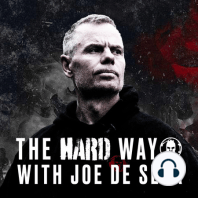22 min listen

What’s a Circadian Rhythm and Why it Matters // HEALTH 015
What’s a Circadian Rhythm and Why it Matters // HEALTH 015
ratings:
Length:
4 minutes
Released:
Feb 24, 2019
Format:
Podcast episode
Description
There are a million ways you can be tempted to squeeze a few more minutes or hours out of your day, but if you want to stay healthy, you should remember one thing: you can’t cheat sleep. If you do, you may throw off what’s called - your circadian rhythm. Circadian Rhythm is also called your sleep/wake cycle and it’s the physical, mental, and behavioral changes that follow a 24- hour or daily cycle in your body. One of the chemical or hormone mechanisms that is central to your circadian rhythm (aka, sleep-wake cycle) is melatonin, which is a hormone that induces sleep. When the optic nerves (in the eye) receive less light, that triggers a signal to the brain to make more melatonin. That happens, for example, when the lights go out and you go to bed. That natural hormone release can be affected which, in turn, can negatively affect your circadian rhythm. Circadian rhythms or sleep-wake cycles influence hormone release, eating habits and even body temperature to name a few. Having an irregular rhythm has been linked to some chronic health conditions like sleep disorders, obesity, diabetes, depression, and something called seasonal affective disorder. Those irregular rhythms will also affect your physical performance, endurance, and cognitive health. How much sleep do we need? We talked about this in another episode, and if you remember, it can vary a bit by age, according to the National Sleep Foundation you need an average of 7-9 hours of sleep each night. To maintain healthy sleep patterns, one thing you should do is keep consistent bedtime habits as much as possible. Try to go to sleep at roughly the same time each night. Another way, putting away your phone at night, and not looking at computer screens in the hours before you sleep because it can disrupt that sleep/wake cycle. Since this question has come up with some of our listeners I want to go back to something we talked about a moment ago. Some people call it the “winter blues” or feeling a bit therapy used for “seasonal affective disorder” (or “SAD”), a condition that makes some people feel down or depressed with reduced exposure to sunlight during the winter. One effective natural treatment is using “light therapy,” in which you use a bright lamp with a strength of 10,000 lux (strength of light emitted) for about 20-30 minutes every morning during the fall and winter. This can decrease the amount of melatonin that is secreted in the brain during the daytime and can help reset your circadian rhythm. Our busy schedules can often distract us from good daily routines and habits and disrupt our circadian rhythm. Being conscious about keeping a regular bedtime and some easy steps and natural treatments can help you maintain healthy sleep/wake cycle throughout the year. Maintaining and supporting your CR means you’ll be much more alert, better prepared for your next race, and more effective at whatever challenge comes next. KEY TERMS AND IDEAS: Circadian rhythms (aka, Sleep/Wake Cycles) have a major impact on health because they help to regulate multiple systems within the body. Maintaining regular sleep patterns is the key to maintaining natural circadian rhythms. For some people who have problems with their circadian rhythms, there are gentle means to compensate and get back on track. 1. Circadian rhythms are physical, mental, and behavioral changes that follow a daily cycle. 2. Melatonin is a hormone that induce sleep and plays a role in maintaining a healthy circadian rhythm. 3. Seasonal affective disorder (or “SAD”) is a condition that makes some people feel down or depressed with reduced exposure to sunlight during the winter. A natural way to help improve this is light therapy (10,000 lux strength) for 20-30 minutes each morning. LINKS & RESOURCES: Follow Dr. Nada on: Linkedin https://www.linkedin.com/in/nada-milo... Sage Tonic www.sagetonic.com Sage Tonic on Instagram https://www.instagram.com/sagetonic/ National Institute of General Medical Sciences, “Circadian Rhyt
Released:
Feb 24, 2019
Format:
Podcast episode
Titles in the series (100)
002: Ricardo Migliarese|One Punch Changed Everything: Like a Rocky of Brazilian Jujitsu, Ricardo Migliarse harnessed the brutality of the mean streets of South Philly to his advantage. He learned to stand up to the daily harassment of bullies and transformed that raw toughness into something that could help by The Hard Way w/ Joe De Sena